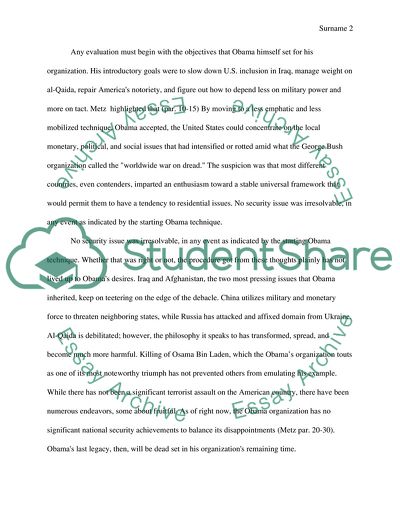Cite this document
(The U.S. National Security Policy under President Obama Essay Example | Topics and Well Written Essays - 2250 words, n.d.)
The U.S. National Security Policy under President Obama Essay Example | Topics and Well Written Essays - 2250 words. https://studentshare.org/politics/1850179-assess-us-national-security-policy-under-president-obama
The U.S. National Security Policy under President Obama Essay Example | Topics and Well Written Essays - 2250 words. https://studentshare.org/politics/1850179-assess-us-national-security-policy-under-president-obama
(The U.S. National Security Policy under President Obama Essay Example | Topics and Well Written Essays - 2250 Words)
The U.S. National Security Policy under President Obama Essay Example | Topics and Well Written Essays - 2250 Words. https://studentshare.org/politics/1850179-assess-us-national-security-policy-under-president-obama.
The U.S. National Security Policy under President Obama Essay Example | Topics and Well Written Essays - 2250 Words. https://studentshare.org/politics/1850179-assess-us-national-security-policy-under-president-obama.
“The U.S. National Security Policy under President Obama Essay Example | Topics and Well Written Essays - 2250 Words”. https://studentshare.org/politics/1850179-assess-us-national-security-policy-under-president-obama.


